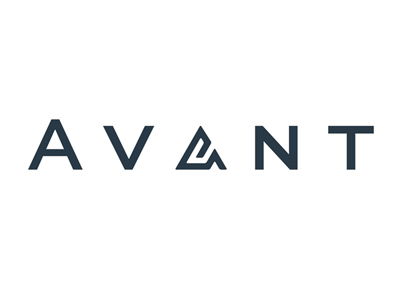Personal loans can be used for many reasons, from debt consolidation to a home renovation.
Unlike secured loans like a mortgage or car loan, you can access funds without putting up your property or savings as collateral. There are all kinds of lenders offering unsecured loans these days.

8 Best Unsecured Loans
Some are traditional banks with brick-and-mortar branches, while others are online. Lenders also sometimes differentiate their services based on credit type or what purpose borrowers plan to use the money for.
Regardless of whether you have excellent credit, average credit, or you’re looking for a bad credit loan, it’s entirely possible to find a lender to work with. Here are our top picks for the best personal loans across a broad range of service types so you can find the best match for your needs.
1. Credible
Credible makes it easy to compare unsecured personal loan offers from multiple lenders at once.
2. PersonalLoans.com
Rather than serving as a direct lender, PersonalLoans.com pairs your loan application with a network of lenders who can look at your request and decide whether to send you an offer.
3. LightStream
LightStream is ideal for borrowers with excellent credit who want high loan amounts and no fees.
4. Happy Money
Happy Money is ideal for borrowers focused on paying off credit card debt and improving financial wellness.
5. Upstart
Upstart offers personal loans for any number of purposes, but boasts major savings if you want to consolidate debt or pay off your credit cards.
6. SoFi
SoFi is unique because it doesn’t charge an origination fee, whereas most other online lenders charge anywhere between 1% and 6% of the total loan amount.
7. LendingClub
Another peer-to-peer lender, LendingClub, has helped over 3 million customers borrow over $56 billion in loans.
8. Avant
If your credit is less than perfect, consider Avant for your unsecured loan. You’ll notice higher interest rates, ranging between 9.95% and 35.99% APR, but their approval guidelines are less strict.
What is an unsecured personal loan?
An unsecured personal loan is a type of loan that does not require collateral as a form of security. This means that the borrower does not have to pledge any assets, such as a house or a car, to secure the loan. Instead, the lender relies on the borrower’s creditworthiness and ability to repay the loan.
Unsecured personal loans can be used for various purposes, such as consolidating debt, funding a home renovation project, or covering unexpected expenses. They are typically offered by banks, credit unions, and online lenders. The terms and conditions of the loan will vary depending on the lender and the borrower’s credit profile.
Types of Unsecured Personal Loans
Unsecured personal loans come in many forms, each with their own set of features and requirements. Make sure you understand the different types of unsecured personal loans that are available to choose the one that best fits your needs. Below are some of the most common types of unsecured personal loans:
Signature Loans
Signature loans are one of the most common types of unsecured personal loans. They are based on the borrower’s creditworthiness and ability to repay the loan, and do not require any collateral.
The loan is provided on the borrower’s signature. They can be used for a wide range of purposes, such as consolidating debt, paying for home improvements, or covering unexpected expenses.
They typically offer higher loan amounts than credit card cash advances or short-term loans. Likewise, they also usually have longer repayment terms.
Peer-to-Peer Loans
Peer-to-peer (P2P) loans are loans made to individuals through online platforms that connect borrowers with investors. Instead of borrowing from a bank or other traditional lender, borrowers can obtain a loan from individual investors through a P2P platform.
These loans can have more flexible terms and lower interest rates than traditional loans. However, the process of obtaining a P2P loan can be more time-consuming and less predictable than going to a traditional lender.
Credit Builder Loans
A credit builder loan is a type of personal loan that is specifically designed to help individuals with poor or limited credit history build their credit score. The loan is typically for a small amount and the funds are held in a savings account until the loan is fully repaid.
Upon repayment, the borrower’s credit score improves, and they will be able to access more traditional loan products with better terms.
See also: Best Credit Builder Loans
Personal Line of Credit
A personal line of credit is a type of loan that allows borrowers to access funds as needed, up to a certain limit. This is similar to a credit card, but with a lower interest rate.
Borrowers can draw on their line of credit as needed and only pay interest on the amount they borrow. This type of loan can be useful for managing unexpected expenses or for covering short-term cash flow needs.
Should you get an unsecured loan for debt consolidation?
You probably noticed that many of the lenders we talked about debt consolidation loans to pay off credit cards or other debts.
When considering a debt consolidation loan, there are a few major points to consider. First, make sure you’re actually going to save money when you consolidate your debt.
Interest Rates and Fees
The annual percentage rate (APR), which includes origination fees, should be less than what you currently pay. Furthermore, compare the length of your repayment period. Credit cards are open-ended, but other loans have a term length.
Even if you get a better interest rate, how does the new repayment term stack up to the old one? Will you actually save money if you’re paying on the new loan for several years? The answer to that last question should be “yes.”

Affordable Monthly Payments
It’s also important to make sure you can afford your new monthly payments. This is especially true if you’re switching from lower minimum payments on your credit card to a new loan.
The last thing you want to do is rack up heavy late fees and hurt your credit because the loan was too tight on your budget. Setting aside an emergency fund can help prevent this from happening.
If you’re short on cash one month because of something unexpected, you have a buffer to keep up with all of your financial obligations. Still, switching from credit card payments to a personal loan can be helpful.
It looks better on your credit report because it’s considered an installment loan rather than revolving credit that is open-ended. You might even see a slight rise in your credit score if you pay off credit card debt with a personal loan.
Minimum Credit Score Requirements
Your credit score is a numerical representation of a borrower’s creditworthiness, based on your credit history. Lenders use credit scores to assess the risk of lending to a borrower and determine the terms and conditions of the loan. The higher the credit score, the more likely the borrower is to be approved for a loan and the better the terms and conditions of the loan will be.
Minimum credit score requirements for unsecured personal loans can vary depending on the lender. Some lenders require a credit score of 600 or higher, and others require a score of 700 or higher. In general, borrowers with higher credit scores will be offered lower interest rates and more favorable repayment terms than those with lower credit scores.
What do you need to apply for a personal loan?
Each lender has its own specific requirements when it comes time to apply for a personal loan. But you should be ready with some of the basics.
If you’re applying in person at a bank branch, you can simply make copies of everything. When applying for a personal loan online, you’ll need to scan your documents and upload them to the application platform.
Required Documents
Start by gathering your ID (like your driver’s license), Social Security number, and one or two months of bank statements. You’ll also need last year’s tax returns, and proof of income (like a recent pay stub).
There might be other requirements. For example, most personal loan lenders have a minimum age of either 18 or 21. You’ll probably need to have had a steady income for the last two years, though some lenders may be more flexible on this requirement.
Email, Bank Account, and Credit Pull
Additionally, you’ll likely need a valid email address, especially when applying online. You’re also likely to need a bank account so that the lender can wire funds to you once you’ve been approved. Finally, just about every lender will pull your credit score.
If you have poor credit or no credit at all, it’s in your best interest to work on building your credit history before applying.
That way, you’ll save money on interest and be able to borrow a larger amount of funds if you need to. If you’re in a time-sensitive situation for getting a personal loan, there are still lenders available willing to work with below-average credit scores.
Next Steps to Get Your Personal Loan
Once you’ve found a few lenders that seem like good matches, fill out their forms for their pre-approval process.
Remember, this only results in a soft pull on your credit history, so you don’t have to worry about multiple inquiries affecting your credit scores. After getting three or four offers, compare loan options, including fees, APR, and term length.
Use an online calculator to determine how much each loan will cost you over time. Furthermore, consider how the new loan payment will affect your monthly budget and whether you can actually receive the funds by the time you need them.
These few steps should help you realize which option is the best one. At that point, you can complete the full application for the best fit and hopefully get your new funds soon!











